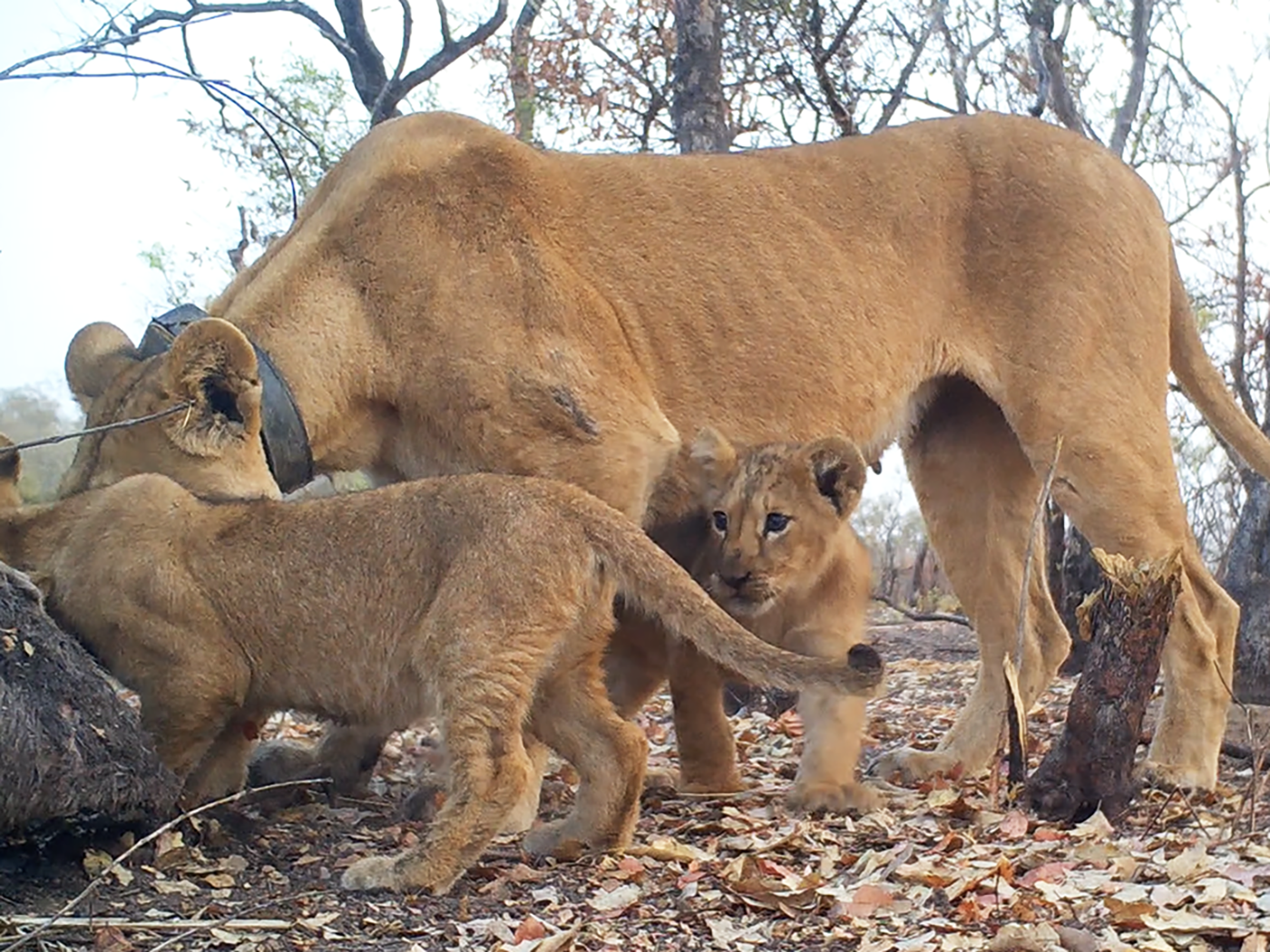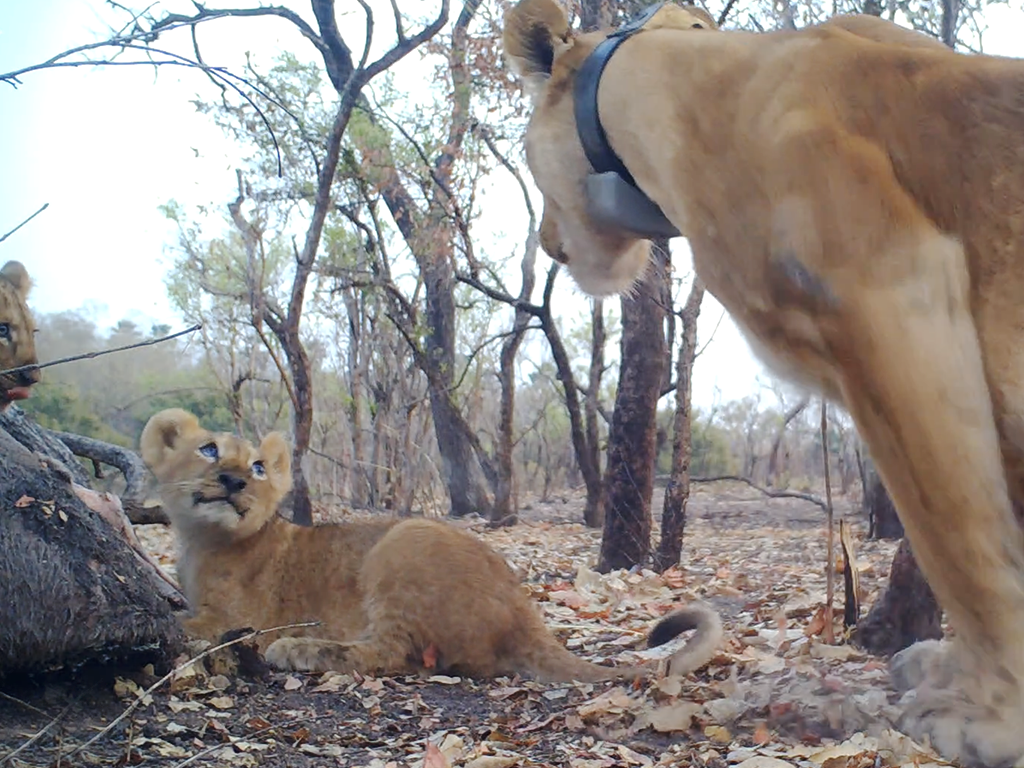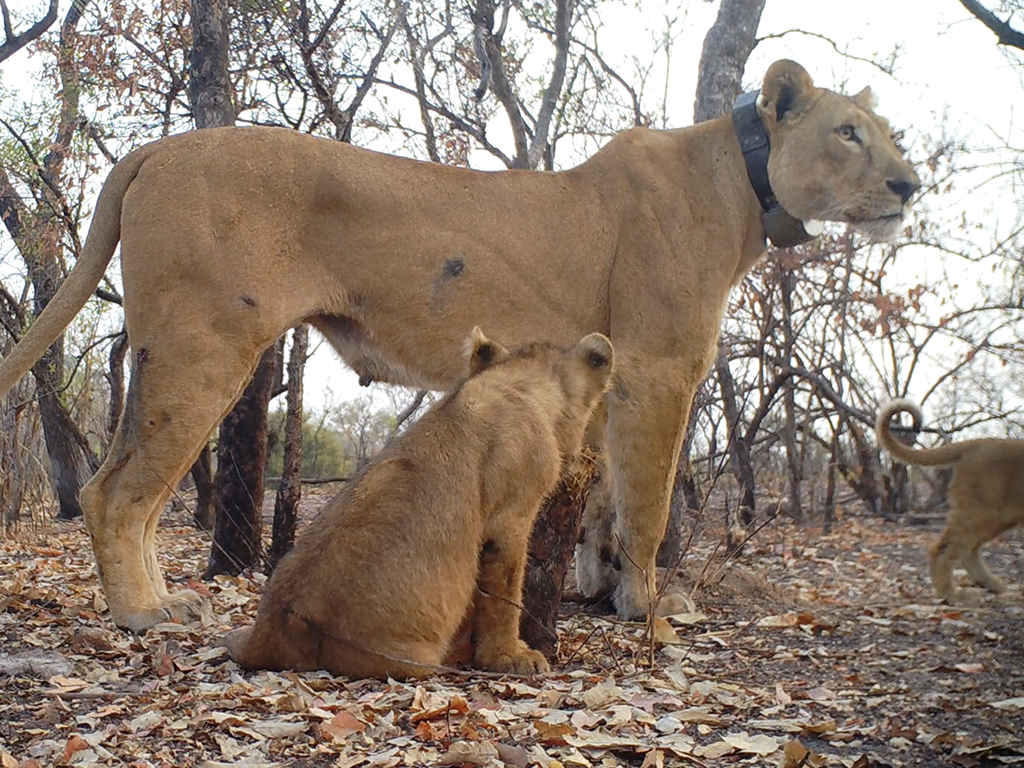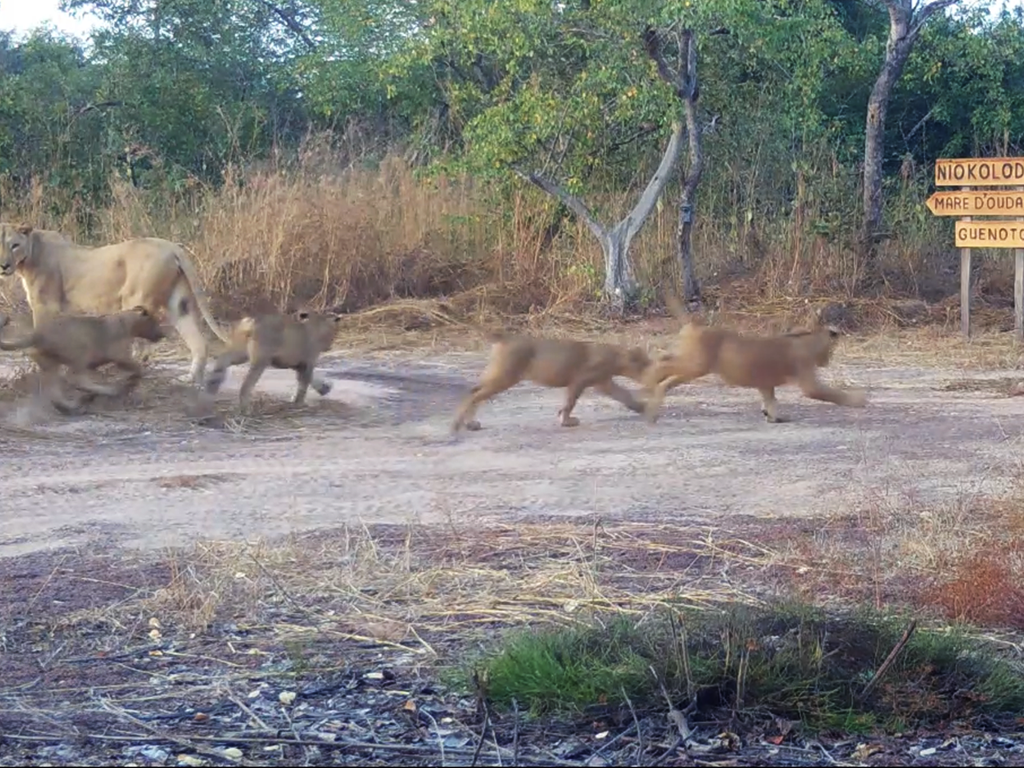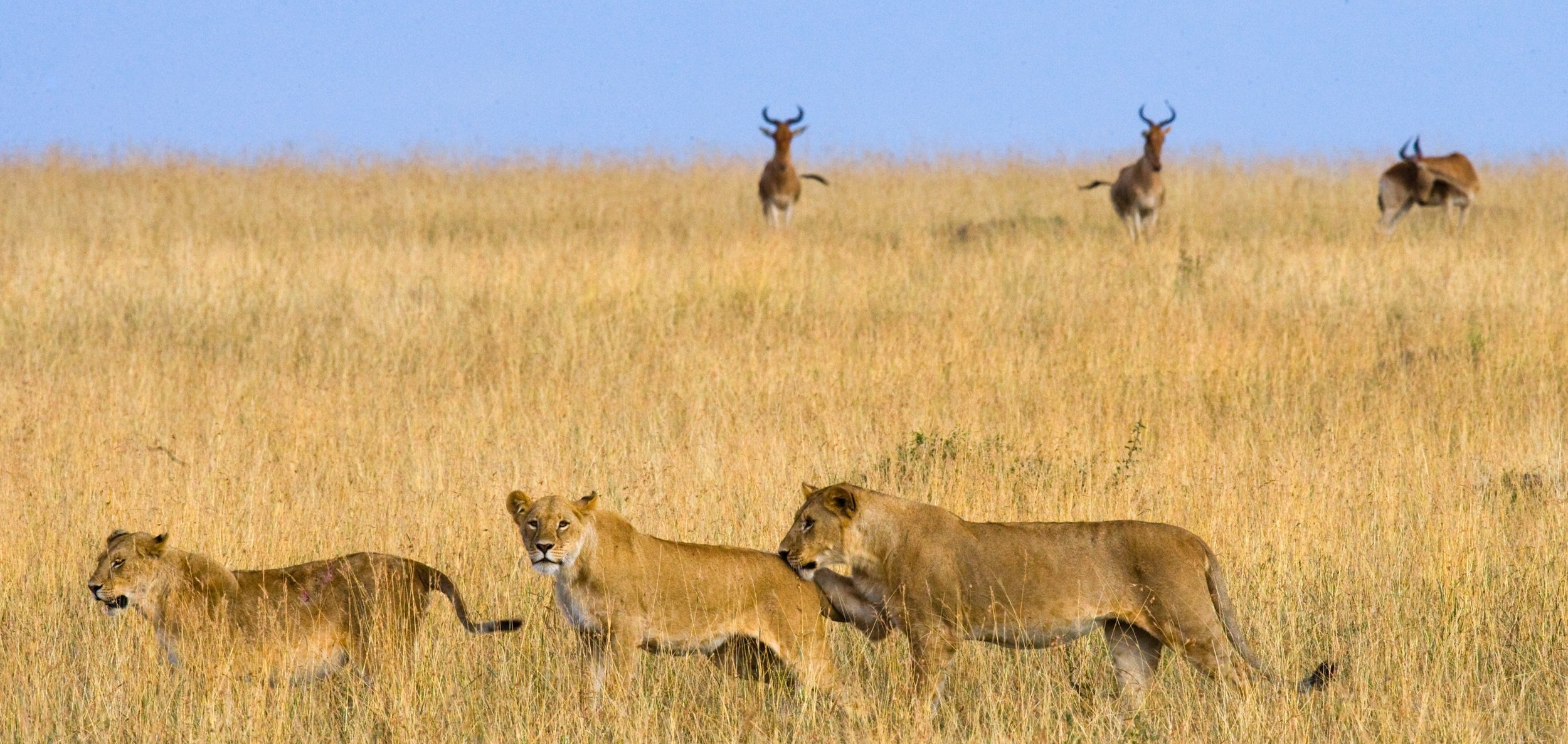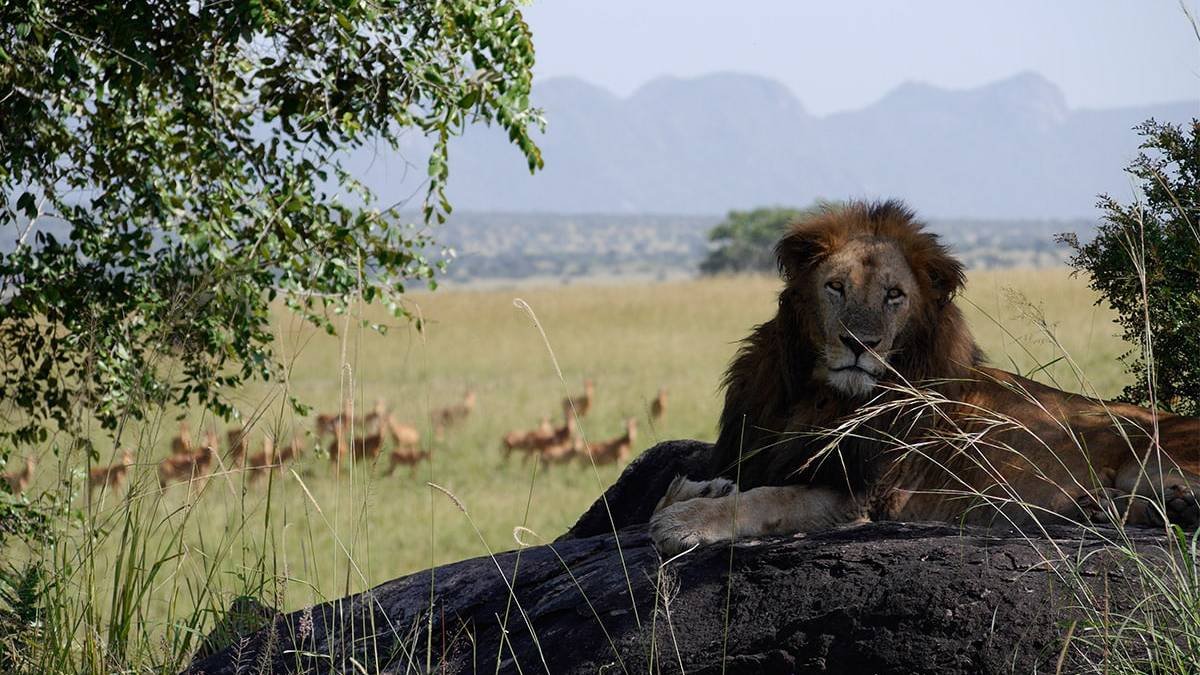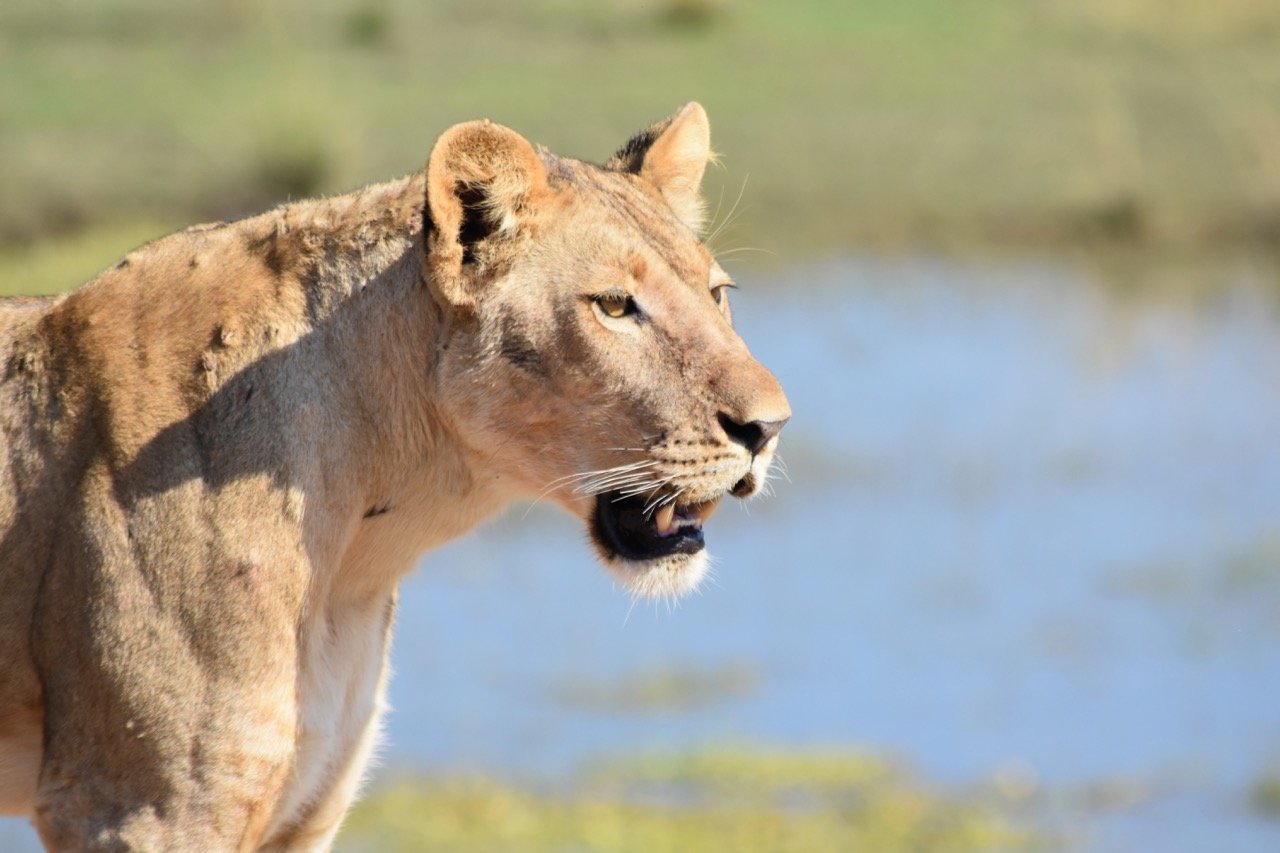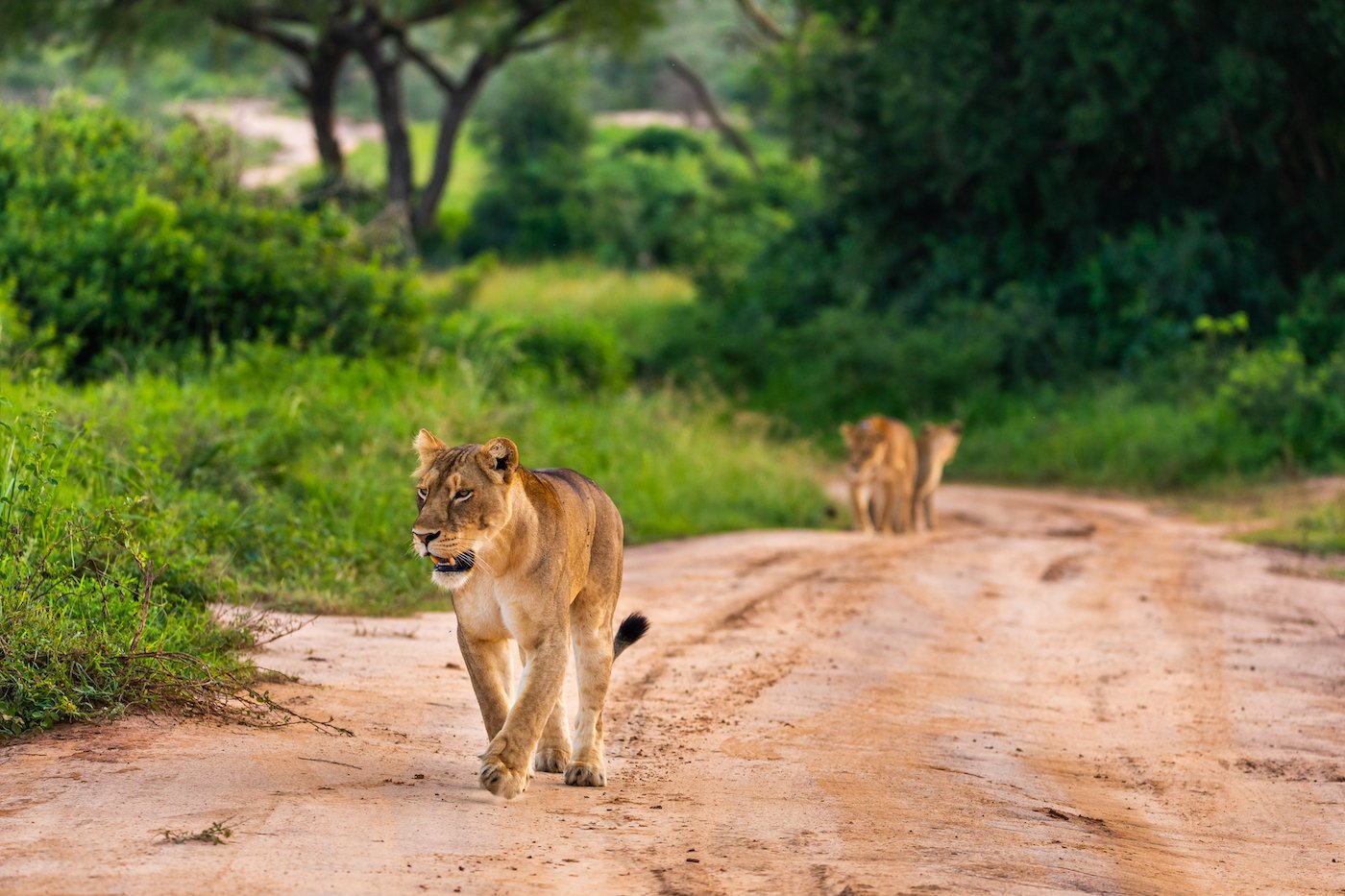GC Lion Protection in Senegal - Niokolo-Koba National Park
We are excited to share some incredible news and footage of an extremely rare population of lions. The video is thanks to our Partner at Panthera, the world's biggest and leading organization for global wildcat conservation. The amazing work in Senegal has also been featured by The Guardian and AfricaNews.
Flo, the lioness matriarch of Senegal's Niokolo Koba National Park and the country's first lion ever GPS collared, with her three new cubs. The cubs, two males, and one female, are three months old in the video (Feb. 2023). ©Panthera
GC Fo-Funds Senegal Project with Lion Recovery Fund for $300,000
New video footage reveals the birth of three kittens by a lioness in one of the world's rarest lion populations, increasing hopes that the critically endangered big cat can be saved from extinction.
The effort by conservationists is succeeding, with strong indications of restoring lion and prey populations and a progressive expansion of anti-poaching coverage. Niokolo-Koba is crucial as the West African lion is Critically Endangered.
Along with many other noteworthy features, it is home to the only remaining population of wild dogs in West Africa, the only population of the Critically Endangered Lord Derby eland in West Africa, a sizable population of chimpanzees, and the greatest number of leopards (about 400) in West Africa. There is also a large hunting block adjacent to it which Panthera could expand their work into one day, making the park even more important.
Given that the WAP complex is in danger in Benin, Burkina Faso, and Niger, Niokolo-Koba assumes enormous significance for West African lions. Only four populations survive, two of which (in Nigeria) are in danger of going extinct locally. The largest population, the WAP, is also under intense political pressure.
National Geographic covers the extensive, vital work in this online article.
Map courtesy of Panthera
In contrast to their relatives in the south, west African lions are all but extinct. Their ancient range has been limited to four populations, which are still present in Nigeria, Benin, Niger, and Burkina Faso. Scientists estimate that between 120 and 374 still exist in the wild.
Only 29 exist in the forests surrounding the tributary to the Gambia River in Senegal's Niokolo-Koba national park, and they are in danger from poaching and habitat loss brought on by farming. Conservationists now have optimism for the lioness and her three cubs' survival thanks to recent footage of the family.
Elite rangers are ready to ambush poachers in Niokolo-Koba National Park. Credit: ©Panthera/DPN
Supporting Additional Elite Ranger Teams to Foster Lion Recovery in Niokolo-Koba National Park, Senegal
This project is aimed at restoring the population of lions inhabiting the Niokolo-Koba National Park (NKNP) to 40–50 individuals by the end of 2024. The project is a key component of Panthera’s long-term program supporting the park, which has resulted in an 87% decrease in poaching and other illegal activities in the pilot area (25% of the park), where Panthera has been uninterruptedly working since 2017. In 2021, we expanded the surveillance and wildlife monitoring-related activities executed in the pilot area to the entire park. The work performed with Lion Recovery Fund support has revealed encouraging signs of lion recovery, with 29 adult and sub-adult lions inhabiting the park in 2021.
Panthera's team collars the first lion in Senegal in 2021, named Florence or 'Flo', through a critical conservation partnership with Senegal's Dept of National Parks. ©Paul Funston/Panthera
Conservation Impact
As a result of expanding and intensifying law enforcement efforts, patrol distance has increased 5-fold since the start of the program in 2017 and signs of poachers have dropped by 87% in the pilot area. Furthermore, lion numbers have doubled to 29 in 2021, putting us on track to meet our recovery target of 40-50 by the end of 2024, and 100 by 2030.
Tiny cub pawprints once again dot the soil in Senegal's Niokolo-Koba National Park thanks to Florence, a 10-year-old lioness deemed the Park’s matriarch. Florence was the first-ever lion to be fitted with a GPS collar in Senegal in 2021 and in her lifetime, she has bred at least nine cubs — increasing the park's lion population by one-third. In turn, ecotourism is rebounding, bringing much-needed funding and jobs to this region. Video provided by ©Panthera/DPN/Everatt
In an effort to provide staffing and coverage for the entire park, Mobile Brigades have been deployed throughout the park since 2021 using rotational shifts. An operational SMART database and analysis system fed by patrol and camera trap data is also in place to inform law enforcement planning. LRF-supported ranger teams working in the park completed 474 patrol days during the reporting period. This effort led to the encounter of 34 poacher camps (of which 23 were active camps) and to the arrest of 27 offenders, including 11 poachers, 5 illegal gold miners, 10 illegal lumberjacks, and one fur trader. Ranger teams also seized 19 rifles caliber 12, 1 automatic rifle Kalashnikov, 82 bullets, 17 bikes, and 22 motorbikes. A total of 27 offenders were prosecuted.
In total, two training courses were delivered during the reporting period, benefiting 60 rangers, who were trained according to specific needs identified by the DPN and Panthera (e.g., first aid, weapon safety, stop and search, and legal mandates, human rights and wider issues surrounding conservation and the law, etc.). The rangers also benefited from continuous training in data collection and navigation.
Ecotourism supports wildlife protection in many endangered global parks.
Other Projects GC Supports With Lions
Mana Pools World Heritage Site, Zimbabwe
Mana Pools is the home of many threatened and endangered species, including elephants and lions. As these surrounding areas face an onslaught of poachers with high-powered weapons, Mana Pools National Park has become a final stronghold for wildlife. Mana Pools has suffered fewer losses compared to surrounding reserves due to its position at the center of this wilderness area, but its defenses need to be strengthened in order to ensure its continued survival as wildlife numbers dwindle elsewhere.
Murchison Falls National Park, Uganda
MFNP has been at the center of headlines around the world recently because of "Snare Mountain", the small mountain made up of over 20,000 snares used on wildlife, including lions. There are just 400 lions surviving in Uganda.
Kidepo Valley National Park
KVNP is down to its last 12 lions. Major efforts are underway by anti-poaching Rangers to halt the decline of the park's lions, who will become locally extinct without emergency efforts. African lions are the largest and most imposing carnivore in Africa and the only true social cats, and they have special cultural significance in most countries on the continent. Unfortunately, African lion numbers have plummeted by over 40% in the last three generations due to loss of habitat and conflict with people. Three-quarters of African lion populations are in decline.



